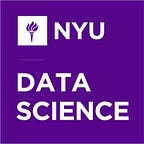CDS Faculty Spotlight: Tal Linzen
This Spring, CDS welcomed Tal Linzen as an Assistant Professor of Linguistics and Data Science. Tal completed his Ph.D. in Linguistics at NYU in 2015, after which began his postdoctoral studies at Ecole Normale Supérieure in Paris. Most recently, Tal was an Assistant Professor of Cognitive Science and Computer Science at John Hopkins University, where he directed the JHU Computation and Psycholinguistics Lab. To commemorate his joining of CDS, social media team member, Colton Laferriere, asked Tal to give us an introduction to himself and his work.
For those who are unfamiliar with linguistics, can you give a brief explanation for your research and how it intersects with the field of data science?
I study how humans learn and understand language. I do that using two tools. The first tool is computational models: computer programs that simulate what humans do. Constructing these simulations helps us learn more about how the human mind functions: as Richard Feynman once said, “What I cannot create, I do not understand”. The second is human experiments, where I might investigate things like how long people take to read complex sentences, or what aspects of a new language are harder to learn than others.
Where’s the connection to data science? Well, computational models that closely imitate humans can be useful not only in advancing our understanding of the human mind, but also in improving language technologies and artificial intelligence. So my work builds on techniques that are popular in data science, like neural networks, but at the same time it helps language technology researchers understand the limitations of those techniques, and it proposes ways to address those limitations.
What originally drew you to study linguistics and data science?
I’ve been interested in languages for as long as I can remember. Before I went to university, I worked as a software engineer and data scientist, though that latter term didn’t really exist at the time. Then, in university, I majored in mathematics and linguistics. At first, I felt like I needed a break from computers and numbers, so I thought I’d focus on topics in theoretical linguistics, where data science isn’t particularly relevant. But then I gradually became more interested in studying how language works in the human mind and brain, and it turned out that tools from statistics, machine learning, and computational linguistics are going to be very helpful. So I ended up sticking with computers and numbers after all.
What excited you most about CDS and joining the community?
CDS already has a number of people who are doing great work in both computational linguistics and computational cognitive science. There are very few places in the world with such a concentration of people working in areas that are adjacent to mine, and I’m excited to work on collaborative projects with my new colleagues. Also, CDS is on a remarkable growth trajectory: it made its first hires just a few years ago, and now has 17 faculty members. Joining CDS at this point in time is a great opportunity to help shape a relatively young department.
